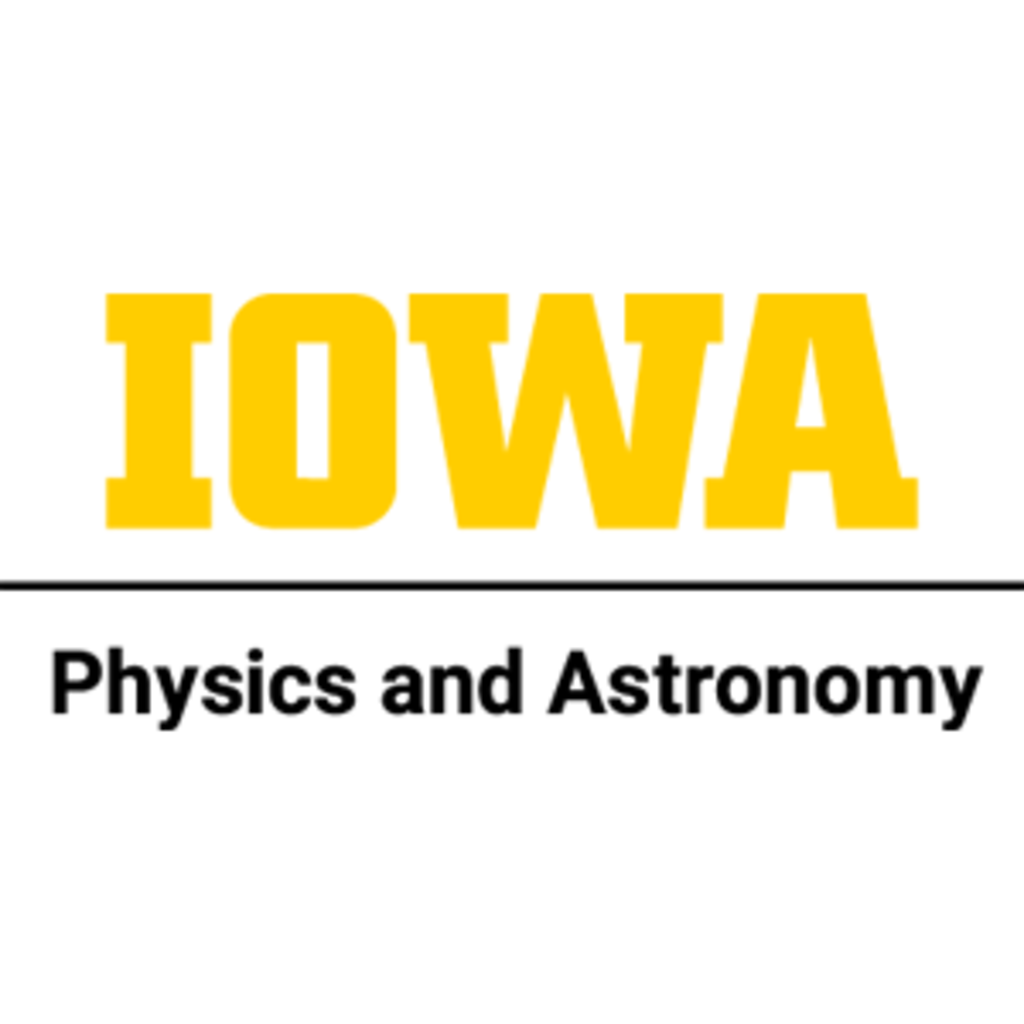
Summer Undergraduate Research Colloquium
I. Automation and Quality Control for Upgrades to The CMS Outer Tracker
Tom Bruner (Mentors: Professor Yasar Onel and Professor Jane Nachtman)
Supported by a Van Allen Summer Research Grant
This summer I worked at the Silicon Detector facility at Fermilab on automation and quality control techniques for 2S and PS sensor modules that are going into CMS at CERN in order to prepare it for the high luminosity era of LHC. While there, I worked on a laser scanning procedure that ensured that 2S sensor modules were manufactured to the proper specifications, as well as an automated gluing process that will be used to accurately manufacture PS sensor modules. These processes will be used to ensure that all the sensors going into the CMS upgrade have been manufactured properly and can collect data accurately.
II. Beam me up, SCOTTY! New algorithms for characterizing the beams of next-generation CMB experiments
Will Golay (Mentor: Clara Vergès and John Kovac (Center for Astrophysics | Harvard & Smithsonian))
Supported by NSF grant AST-2050813, the Smithsonian Institution, the Iowa Space Grant Consortium Undergraduate Research Fellowship, and the SMACNA College of Fellows
The latest cosmologies predict inflation in the early universe imprinted a signature polarization pattern in the cosmic microwave background (CMB). Precision CMB measurements such as those carried out by the BICEP/Keck collaboration rely on a thorough understanding of instrumental systematics. The first step in characterizing the beams is the demodulation of a signal when observing a chopped source. Here we present a summary of previously implemented demodulation techniques and evaluate a new Fourier-space approach called SCOTTY.
III. Cooling System for CMS Barrel Timing Layer Upgrade
Mary Elizabeth Haag (Mentor: Professor Jane Nachtman and Professor Yasar Onel)
Supported by a Charles Wert Scholarship
The University of Iowa has been working on the Cooling System for the Barrel Timing Layer (BTL) upgrade for the CMS detector at the Large Hadron Collider (LHC). This summer research focused on creating a simulation of the two-phase cooling system.
IV. DUNE Reconstruction Algorithm
Avi Kaufman (Mentor: Professor Jane Nachtman)
Supported by Wert Family Summer Research Grant
The Deep Underground Neutrino Experiment aka DUNE intends to discover the inner workings of the Neutrino and its implications for our universe. In order to get a better understanding of the Neutrino we must be able to accurately reconstruct any interaction a Neutrino has with another particle. The main focus of this presentation will be explaining the algorithm of which the Neutrino interaction is reconstructed.
V. DUNE, Machine Learning for Neutrino Physics
Jacob Andrews (Mentor: Professor Jane Nachtman)
Supported by a Van Allen Summer Research Grant
The DUNE experiment seeks to understand neutrino oscillations by observing the neutrinos change in flavor at two different detectors. The detectors use and machine learning based reconstruction chain (MLReco3d) which I attempted to improve with a state-of-the-art deep learning architecture called the Graphical Convolution Neural Network. My presentation will explain this algorithm and the chains workings as well as their effectiveness.